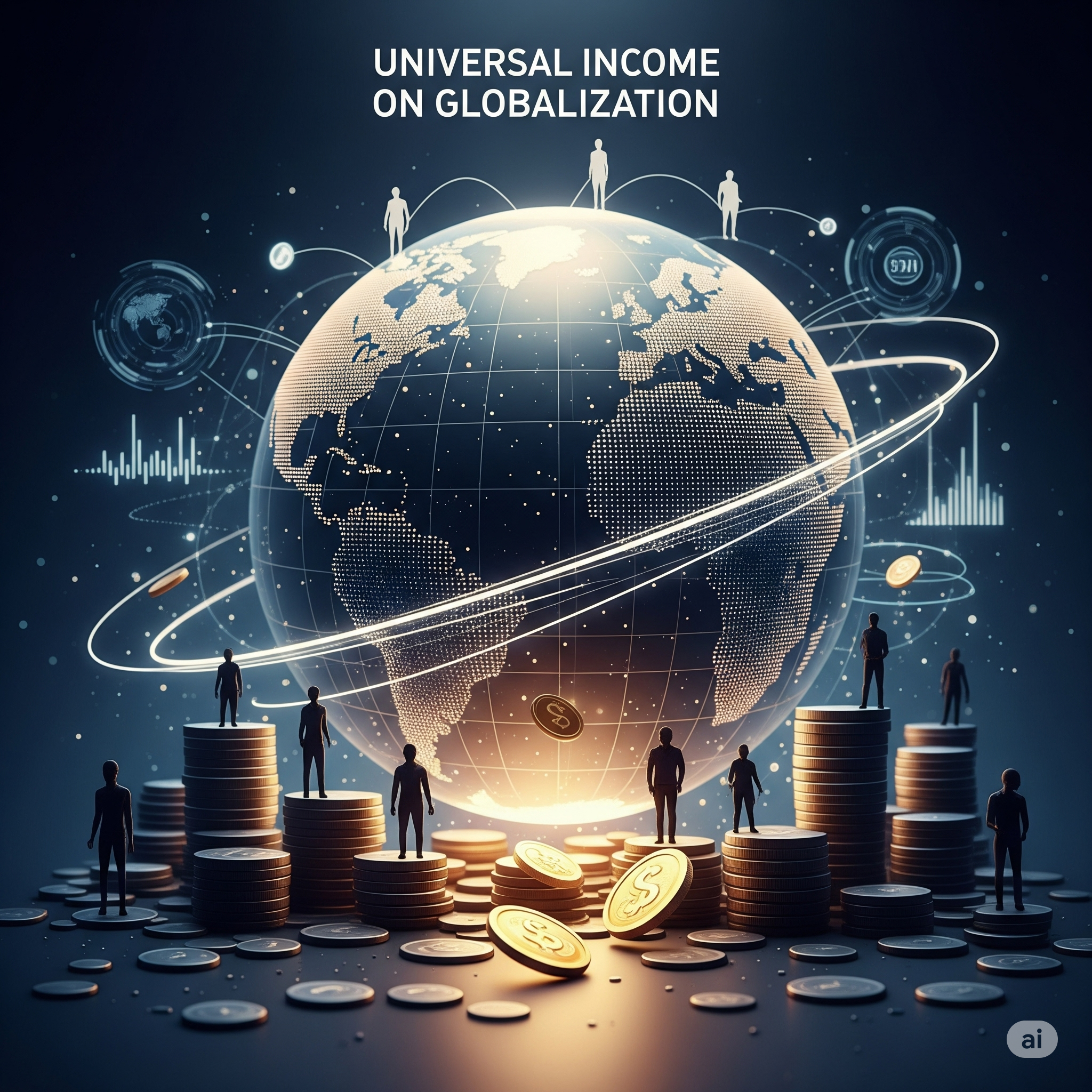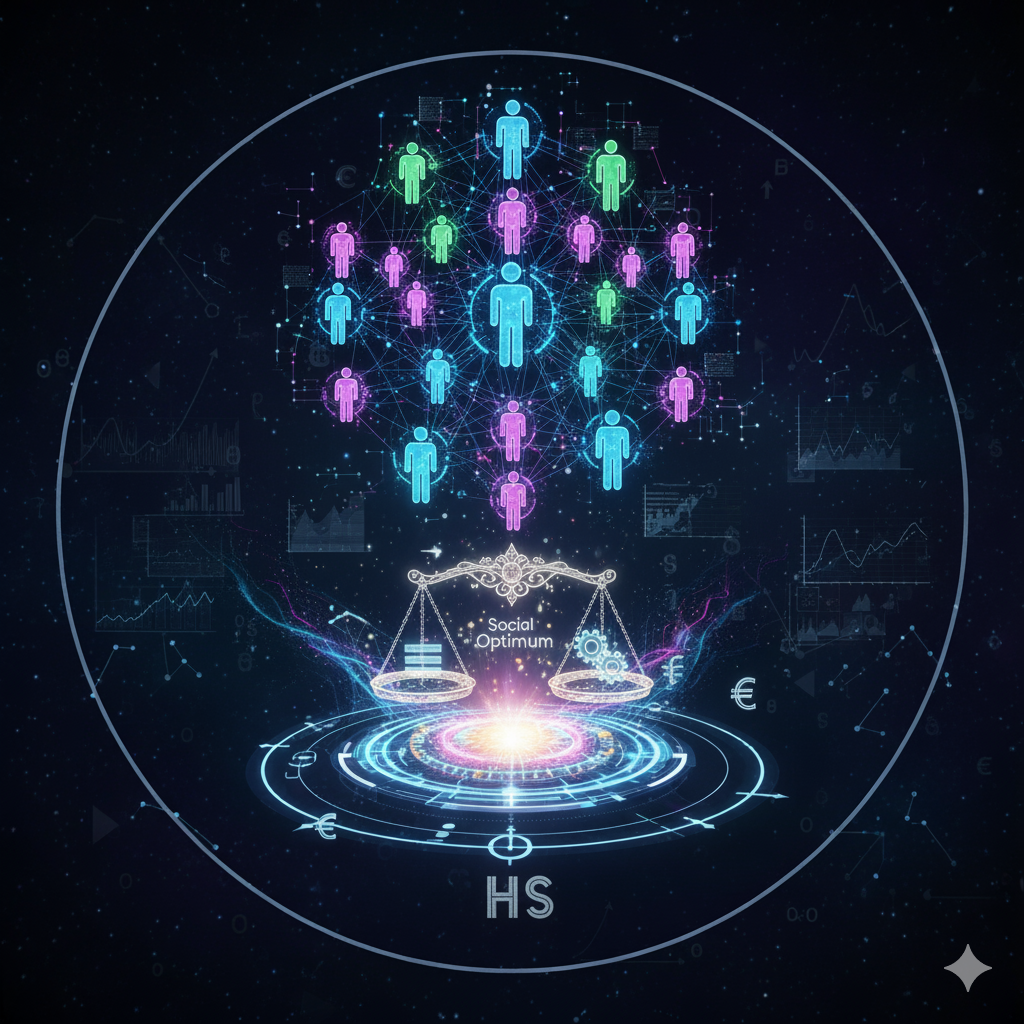Introduction
Universal Basic Income (UBI) has emerged as one of the most debated economic and social policy ideas in the 21st century. The concept advocates for providing all citizens with a guaranteed, unconditional sum of money regularly, regardless of their employment status, income, or wealth. Supporters argue that UBI has the potential to eradicate poverty, reduce inequality, and provide economic security in an era of automation and unstable job markets. Critics, however, warn that it could be financially unsustainable, discourage work, and undermine economic productivity.
In the post-pandemic world, when millions lost jobs and governments around the globe introduced direct cash transfers as emergency relief, the conversation around UBI gained renewed importance. This article explores the origins, rationale, experiments, advantages, challenges, and the future prospects of UBI while analyzing whether it is truly a boon or burden for society.
Historical Background of Universal Basic Income
The idea of providing citizens with guaranteed income is not entirely new. Its roots can be traced back to philosophical, economic, and political debates of the past:
- 16th Century Origins: Philosopher Thomas More, in Utopia (1516), hinted at the concept of guaranteed support for all to reduce crime and suffering.
- 18th Century Thinkers: Thomas Paine, an American revolutionary thinker, proposed a system of basic payments to every citizen funded by land taxes.
- 20th Century Proposals: During the Great Depression, economists suggested guaranteed minimum incomes to stabilize economies. Later, Nobel laureate Milton Friedman proposed a “negative income tax,” which inspired some modern welfare policies.
- 21st Century Debates: With globalization, rapid technological change, and automation threatening jobs, UBI resurfaced as a policy idea debated by economists, technologists, and policymakers worldwide.
The Concept of Universal Basic Income
Universal Basic Income is defined by three key features:
- Universality – Paid to all individuals, regardless of socio-economic status.
- Unconditionality – No work requirement, means test, or eligibility condition.
- Periodicity – Provided at regular intervals (monthly or annually).
- Cash Payment – Given in money rather than food, subsidies, or services.
Thus, unlike targeted welfare programs that often involve bureaucratic hurdles, UBI is designed to be simple, direct, and inclusive.
The Rationale for Universal Basic Income
Several modern challenges justify the growing demand for UBI:
- Automation and Artificial Intelligence (AI)
- Millions of jobs across manufacturing, logistics, and even white-collar professions are at risk due to automation and AI.
- UBI is seen as a safety net to protect workers displaced by technology.
- Millions of jobs across manufacturing, logistics, and even white-collar professions are at risk due to automation and AI.
- Global Economic Inequality
- Wealth concentration in the hands of a few corporations and individuals leaves large populations struggling.
- UBI could redistribute income to reduce inequality.
- Wealth concentration in the hands of a few corporations and individuals leaves large populations struggling.
- Precarious Work and Gig Economy
- With the rise of gig work, contract jobs, and informal employment, job security has declined.
- A guaranteed income could provide stability in such volatile labor markets.
- With the rise of gig work, contract jobs, and informal employment, job security has declined.
- Poverty Eradication
- Traditional welfare often fails to reach the poorest due to bureaucracy or corruption.
- Direct cash transfers ensure everyone has a minimum level of financial security.
- Traditional welfare often fails to reach the poorest due to bureaucracy or corruption.
- Pandemic Lessons
- COVID-19 highlighted the fragility of social security systems.
- Many countries experimented with temporary cash support, strengthening the case for permanent UBI.
- COVID-19 highlighted the fragility of social security systems.
Global Experiments with UBI
Several countries have conducted experiments to test UBI’s feasibility:
- Finland (2017-2019): Provided 2,000 unemployed people with €560 per month. Results showed improvement in mental health and happiness, though employment impacts were limited.
- Kenya: Nonprofit organizations like GiveDirectly have been conducting long-term UBI trials, where recipients report improved nutrition, education, and entrepreneurship.
- Canada (Ontario, 2017): Introduced a pilot program offering CAD 17,000 annually, but it was canceled due to high costs.
- India: Several states, like Madhya Pradesh and Sikkim, experimented with cash transfers. Studies revealed better nutrition, school attendance, and reduced debt stress.
- United States: Cities like Stockton, California, tested UBI pilots where participants received $500 monthly, leading to reduced stress and greater financial stability.
These experiments reveal mixed results but show promise in enhancing well-being, reducing poverty, and improving social trust.
Potential Benefits of UBI (Boon)
Supporters argue that UBI could transform society positively.
1. Poverty Reduction
UBI ensures that no citizen falls below a minimum standard of living, helping eradicate extreme poverty.
2. Simplicity and Efficiency
Unlike complex welfare programs, UBI reduces bureaucracy, corruption, and mismanagement by providing direct cash transfers.
3. Boosts Human Dignity
People receive income not as charity but as a right, giving them dignity and freedom to make financial choices.
4. Encourages Entrepreneurship
With a safety net, individuals may take risks to start small businesses or pursue education, contributing to innovation.
5. Mental Health and Social Well-being
Experiments show reduced stress, better physical health, and improved community relationships when people have financial security.
6. Adaptation to Automation
As jobs disappear due to AI and robotics, UBI provides an alternative model of income distribution to sustain demand and consumption.
7. Reduces Inequality
UBI bridges the wealth gap by redistributing national resources equitably.
8. Gender Empowerment
Women, especially homemakers, often excluded from formal labor, benefit greatly from UBI, ensuring financial independence.
Challenges and Criticisms of UBI (Burden)
Critics argue that UBI presents serious challenges that may outweigh its benefits.
1. Financial Unsustainability
- Providing a meaningful income to all citizens requires massive government expenditure.
- For example, in India, giving just ₹6,000 per month to every adult could exceed the entire annual government budget.
2. Inflationary Pressure
- A sudden increase in purchasing power may lead to rising prices, neutralizing the benefits of UBI.
3. Disincentive to Work
- Opponents argue that if people receive money without working, it may reduce labor supply, productivity, and economic growth.
4. Risk of Inefficient Allocation
- Cash without proper guidance could lead to spending on non-essential goods, addiction, or waste.
5. Impact on Existing Welfare Programs
- Governments may replace targeted welfare schemes (like healthcare, education subsidies) with UBI, which may harm vulnerable groups.
6. Political and Social Resistance
- In many societies, the idea of “something for nothing” faces ideological opposition.
- Middle and upper classes may resist paying higher taxes to fund UBI.
7. Risk of Corruption in Developing Nations
- Although UBI is meant to be corruption-free, weak digital infrastructure in developing nations may lead to fraud.
UBI in the Indian Context
India, with its vast population and income disparity, presents unique challenges:
- Advantages:
- Direct benefit transfer (DBT) system is already functional.
- Can replace inefficient subsidies (like fuel or food) with cash.
- Could empower rural households, women, and farmers.
- Challenges:
- Extremely high fiscal burden.
- Inflationary risks in rural markets.
- Fear of misuse due to weak financial literacy.
Some economists suggest quasi-UBI – targeting vulnerable groups rather than all citizens. India’s experiments with conditional cash transfers like PM-Kisan (₹6,000 annually for farmers) are steps in this direction.
Future Prospects of UBI
The future of UBI depends on balancing benefits with economic realities. Possible approaches include:
- Partial or Targeted UBI: Instead of universal coverage, governments may provide UBI only to the poorest or unemployed.
- Integration with Welfare: UBI may work alongside healthcare, education, and housing programs rather than replacing them.
- Funding Sources: UBI could be financed by higher taxes on wealth, carbon emissions, or automation-driven profits.
- Digital Payments: With growing fintech infrastructure, implementing UBI through direct bank transfers is becoming easier.
- Global Cooperation: In the future, UBI could be part of global poverty eradication strategies led by institutions like the UN or World Bank.
Conclusion
Universal Basic Income is both a boon and burden, depending on how it is implemented. As a boon, it can reduce poverty, empower individuals, prepare societies for automation, and ensure dignity and well-being. As a burden, it may strain government finances, risk inflation, and discourage work participation.
A balanced approach is necessary – countries may begin with targeted or partial UBI, focusing on vulnerable groups, and later expand based on economic capacity. Rather than replacing welfare systems entirely, UBI should complement existing social security measures.
Ultimately, the future of UBI depends on political will, economic feasibility, and societal acceptance. As the world faces rapid technological change and inequality, UBI remains one of the most transformative yet controversial policy ideas of our time.




